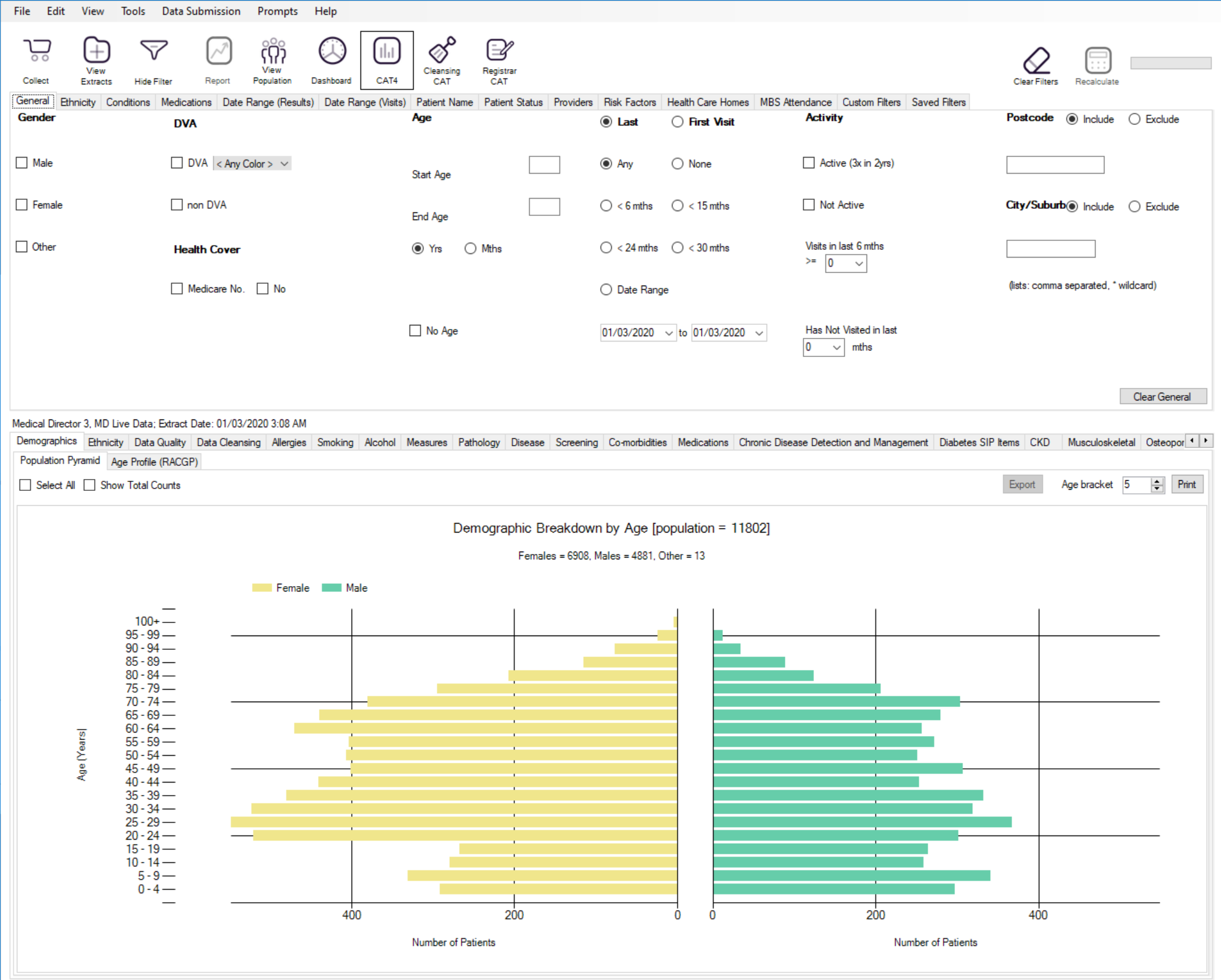Recipe Name: | Identify patients with a stroke or TIA not on cholesterol lowering medication |
Rationale: | Cholesterol lowering therapies (unless contraindicated) are recommended for all ischaemic stroke patients regardless of cholesterol level. Reducing mean LDL cholesterol levels from 133 mg/dl to 73 mg/dl (1.9 mmol/L) among patients receiving atorvastatin (80mg) resulted in absolute risk reduction of 2.2% over five years for fatal or non fatal stroke and 3.5% for major cardiovascular events1. |
Target: | Effectively identify all ischaemic stroke / TIA patients not on cholesterol lowering medications (unless contraindicated) that would benefit from therapy with a statin. Refer patients for lifestyle advice. |
CAT Starting Point: |
*The decision to select either "Active" or "All" patients is left to the practice to make |

In the Filters Pane:
1. In the "Conditions" tab select "Stroke" – Yes
2. In the "Medications" tab under "Medications – Heart" select
3. Click "Recalculate"
4. Click "View Pop"
This will list all active (if selected on the general filter tab) patients who had a stroke currently not taking lipid modifiying medication and their last visit and assigned provider.
To Export Patient List to Microsoft Excel:
1. Click on the “Export Icon” at the top of the Patient Reidentification window.
2. Click on “Excel”
3. Choose a file name and a location to save to (eg. Create a folder C:/ClinicalAudit/CAT Patient FollowUp)
4. Click “Save”
The steps above will produce a list of patients with contact details in MS Excel which can then be used to:
1. Go back through the individual patient records in the GP Clinical Desktop System (CDS) and update known records
2. Phone patients to update their record
3. Produce a mail merge to recall patients for follow up
This CAT Recipe was submitted by
National Stroke Foundation
and supports their Clinical Guidelines for Stroke
and TIA Management: A guide for general practice, 2008.
http://www.strokefoundation.com.au/health-professionals